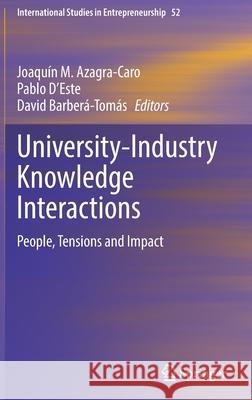University-Industry Knowledge Interactions: People, Tensions and Impact » książka
topmenu
University-Industry Knowledge Interactions: People, Tensions and Impact
ISBN-13: 9783030846688 / Angielski / Twarda / 2022 / 250 str.
Kategorie:
Kategorie BISAC:
Wydawca:
Springer
Seria wydawnicza:
Język:
Angielski
ISBN-13:
9783030846688
Rok wydania:
2022
Wydanie:
2021
Numer serii:
000286843
Ilość stron:
250
Waga:
0.49 kg
Wymiary:
23.39 x 15.6 x 1.42
Oprawa:
Twarda
Wolumenów:
01
Dodatkowe informacje:
Wydanie ilustrowane











